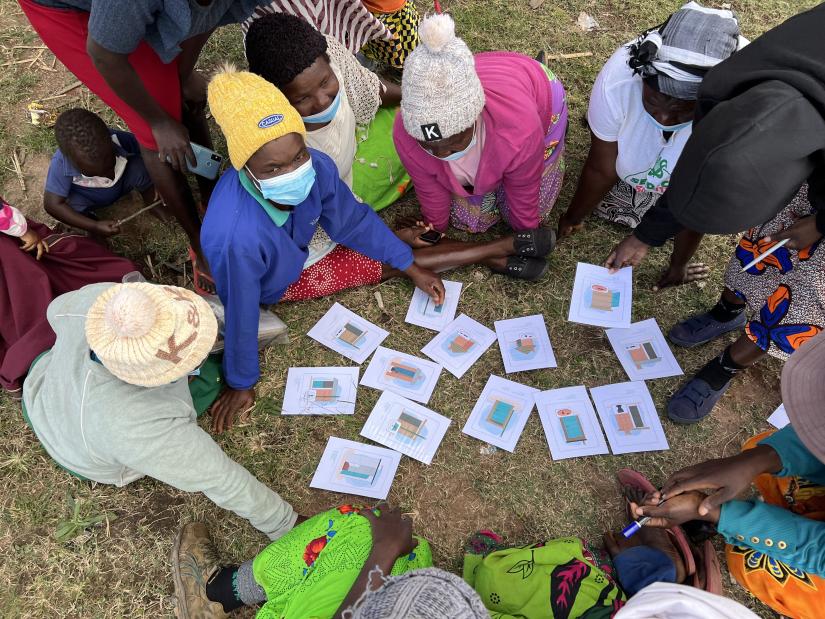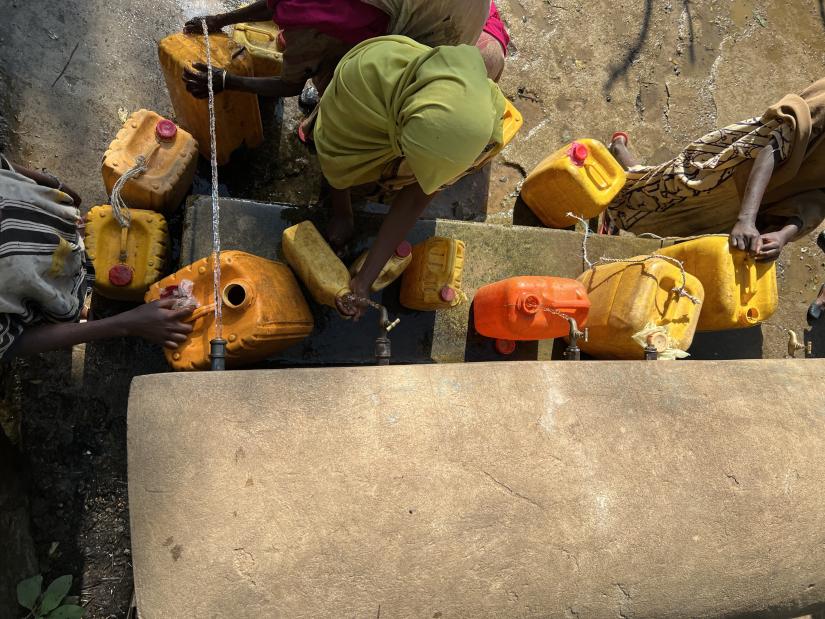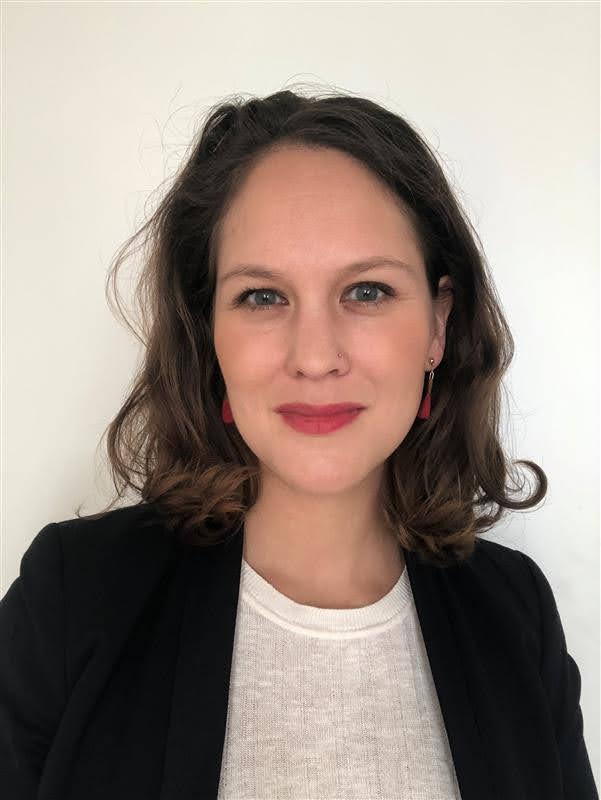Jess MacArthur straddles the worlds of academia and industry, but it wasn’t always like that. It took a decade of work experience and four years of PhD study.

Jess’ QualKit in action.
Have you ever felt like you just can’t get traction? When you realise you don’t actually possess all of the skills to do what you really want to do.
For Jess MacArthur, it happened while trying to shine a light on the unseen heroes of the sanitisation sector in Nepal: women.
While working in South Asia for a startup-style not-for-profit, Jess had a hunch that there were many more unseen women working in sanitisation in Nepal than people realised. This hunch eventually redirected her to a PhD at UTS.
Bringing industry research to academia
Jess hadn’t published any academic papers before starting her PhD. And if she’s honest, she’ll admit that she didn’t fully understand academic frameworks back then either.
But she had carried out extensive research using industry-standard design thinking techniques, which is what she used to develop her pre-PhD research into the hidden role of women sanitisation workers.
Despite the research being on such an important topic, it wasn’t gaining traction. Even with a Master of Water Science from the University of Oxford and almost a decade working in Bangladesh where Jess had contributed to countless water, sanitation and hygiene projects, she had little experience talking about gender.
“I realised that I didn’t understand the concepts of gender. I didn’t have any of the language to share what I thought was fantastic research into the wider community because I wasn’t using the language they used,” she reflects.
“I didn’t understand the theories and the frameworks. I felt very out of my comfort zone. But I realised that it was an important topic, and that people weren’t thinking about it very often.”
This experience gave Jess the awareness that to foster sustainable projects, she needed to understand academic research better. That’s when she started actively looking for a PhD to answer a critical question:
“How can I blend the style of research that I know works from an industry perspective into the language and the valid methods that are coming from the academic world so that we can build a more transparent and trustworthy foundation?”
Finding an academic foundation
Jess found her answer at the UTS Institute for Sustainable Futures (ISF). By coincidence she’d seen a PhD opportunity advertised that was perfect except for one point:
“It was very clear at the bottom - only for Australians,” said the Canadian.
But the ISF felt like a natural fit for her research into how to think of gender in the water and sanitation space. Not taking no for an answer, Jess sent her CV along with a pitch about herself to ISF who found supervisors, stipends and a scholarship for her.
The next thing Jess knew, she was on a plane to Sydney.
“I was nervous because I didn't have a strong academic foundation. I went to the University of Oxford, but I did a geography degree and learnt about hand pump policies. It was a very different world,” she remembers.
“Industry knowledge is something that you can't teach at a school. The whole point of doing a PhD is to build your academic foundation. You don't have to come in with it.”

The home of research translation
Now with a completed PhD, Jess lives with one foot in and one out of academia with roles at Save the Children US and ISF.
“Academia can be 10 years behind industry, but it doesn't always have to be,” Jess explains.
Her goal is to bring academic insights into practice. Over the course of her PhD, she’s discovered that this translation lives within individuals just like herself.
“Humans transfer knowledge and bring back and forth ideas between academia and industry.”
To facilitate people to do this, Jess and ISF have developed the qualKit for people working in gender equality and social inclusion (GESI) programs. Free and accessible across two languages, the website offers free access to a curated set of qualitative monitoring, evaluation, and learning (MEL) tools.
The value is noticeable:
“We've had people pick it up from a variety of projects and the majority of the use cases are not water and sanitation related.”
Blend the best of your worlds
Regardless of your current work, Jess believes that you can become ‘bilingual’ across academia and your industry.
“I don't mean ‘bilingual’ in terms of national languages, but able to speak the words of academia and your industry. I think it can be learned.”
“Don’t be scared if you haven't studied or haven't written a paper in 10 years. It’s totally fine,” she advises.
“I wanted to do a PhD not just to have an initial next to my name, but because the research was really something that I cared about.”
What topic do you find interesting? Explore it with a research degree ->
-
Research Consultant


